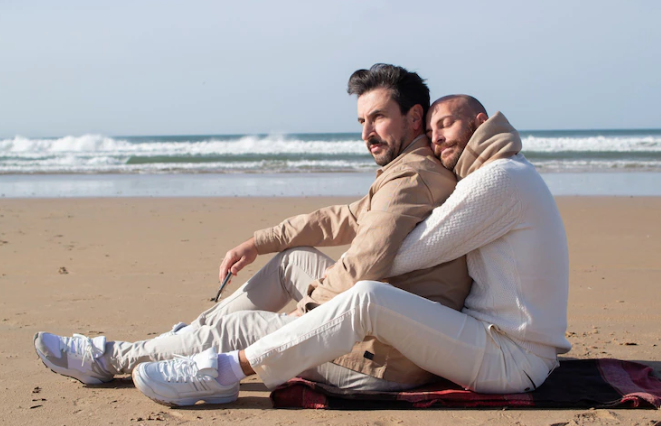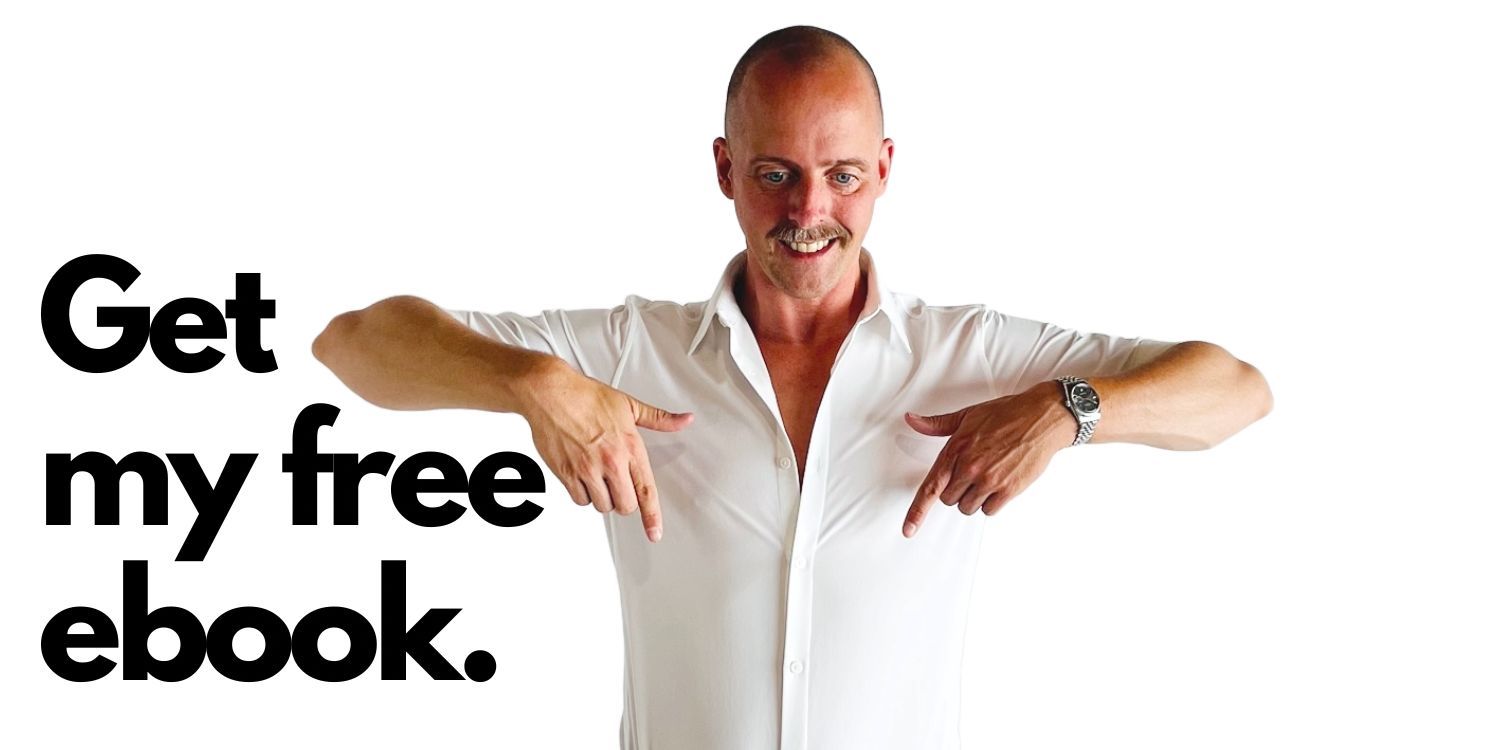What makes coaching for gay men unique?
May 11
/
René Luisman
The question came from a straight man. He saw my website and did not understand why gay people are coached in a different way. And to prevent his imagination from running wild, he decided with some hesitation to put the question to me.
How do you react when you find out you are gay?
Imagine that you are a boy of about twelve years old. You're at the start of puberty. Your body changes and you discover that you are attracted to other guys and men. Around you, the norm is that you like women. Your father, your grandfather and your classmates. They are your role models when it comes to how a man acts and what is expected of him.
But you feel different. Maybe you are calmer, more creative or more sensitive. Traits that are often associated with being feminine. And doubt sets in. Is something wrong with you? Is it obvious to people in the way you talk or move? And are you still welcome if you show this side of yourself? Out of fear or shame you initially hide your discovery.
Then there finally comes that moment when you mustered up enough courage to tell your parents, friends and family. In the best case, they accept it and you feel relieved. But more often your environment needs time to get used to this idea. They want to protect you or are afraid of how the outside world will react. And to avoid confrontations, you adjust your behavior again.
But you feel different. Maybe you are calmer, more creative or more sensitive. Traits that are often associated with being feminine. And doubt sets in. Is something wrong with you? Is it obvious to people in the way you talk or move? And are you still welcome if you show this side of yourself? Out of fear or shame you initially hide your discovery.
Then there finally comes that moment when you mustered up enough courage to tell your parents, friends and family. In the best case, they accept it and you feel relieved. But more often your environment needs time to get used to this idea. They want to protect you or are afraid of how the outside world will react. And to avoid confrontations, you adjust your behavior again.
Isn't this resolved after you come out?
As an adult, every person has the task of exploring which parts of yourself are real. And what parts you formed to protect yourself. For gay men, this task can be extra challenging. Because you usually come to the conclusion at a young age that it is unsafe to show certain sides of yourself. And once you've come out, you want to leave this period behind you as soon as possible and celebrate your freedom. But what traces does it leave when you've kept parts of yourself hidden for years?

What is the impact on your adult life?
Many of the men in my practice report a strong need for validation. The confirmation that they are good enough. They mainly see what can be done differently or better. The man you want to be overshadows the image you have of yourself. And because you doubt yourself, you seek this acknowledgment from your partner, family, friends or colleagues. The lack of self-acceptance brings with it a constant restlessness.
You may feel a huge urge to prove yourself. You are constantly looking to gain new knowledge from books and studies. Or you get your status from promotion and expensive stuff. But beneath the surface you feel empty and lonely.
The belief that you are not enough is painful. In order not to feel this, some gay men have lost contact with their bodies. From your head you have a grip on your emotions and you can quickly assess whether a situation is safe. At the same time, this makes it difficult to really connect with others. Because you cannot feel or understand what you are really experiencing.
You may feel a huge urge to prove yourself. You are constantly looking to gain new knowledge from books and studies. Or you get your status from promotion and expensive stuff. But beneath the surface you feel empty and lonely.
The belief that you are not enough is painful. In order not to feel this, some gay men have lost contact with their bodies. From your head you have a grip on your emotions and you can quickly assess whether a situation is safe. At the same time, this makes it difficult to really connect with others. Because you cannot feel or understand what you are really experiencing.
So what's the use of coaching?
As a coach, I teach you to reconnect with your feelings and emotions. This can be overwhelming at times at first. Because with the fear and shame, sometimes anger or sadness also emerges. Where do these feelings come from and what are they telling you? By allowing your emotions, your real need also comes to the surface. The thing you once missed so much and what you long for now.
You explore the judgments you have formed about yourself and how they affect your life. Focusing on your positive qualities creates a different view of yourself. This is a process where you are at your most vulnerable. It helps to be in a safe environment with someone who understands what it's like to exclude parts of yourself. That gives you the space to tell your story. And encourages you to show yourself. Also the sides you might be ashamed of.
You read an article by Gay Men Coaching
How I can support you:
- Self Love Course - Learn step by step how to build a positive self image.
- Men's Group - Find out how other gay men deal with issues such as intimacy and sexuality.
- Coming-out program - If you could use some support before, during or after your coming-out.
- Individual coaching - If you want to improve the relationship with yourself or others.
And more about me and my approach:
Follow me on:

Get in touch
-
Geestbrugkade 32, 2281 CX Rijswijk, Netherlands
-
contact@reneluisman.nl
-
Chamber of Commerce number: 59693908
-
IBAN: NL49 KNAB 0259 9752 22
Join Our Newsletter
Get monthly updates on news, articles, tips and more.
Thank you!
Gay Men Coaching © 2014 - 2025

with 5 powerful tools to feel confident
As a bonus you will receive a monthly e-mail with tips & inspiration. You can easily unsubscribe at the bottom of every newsletter.
